Daniel Novak
Domain-Specific Improvement on Psychotherapy Chatbot Using Assistant
Apr 24, 2024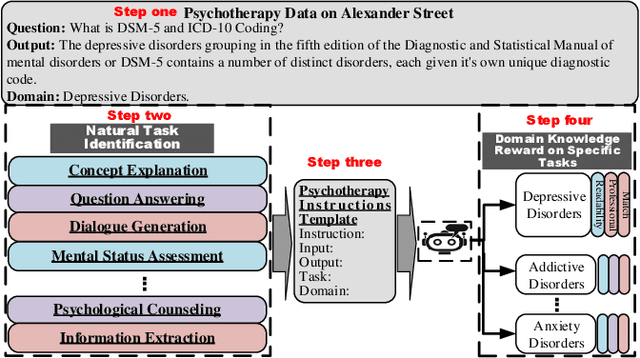
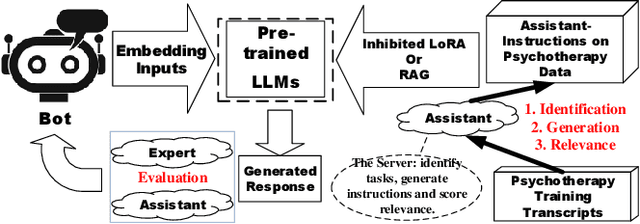
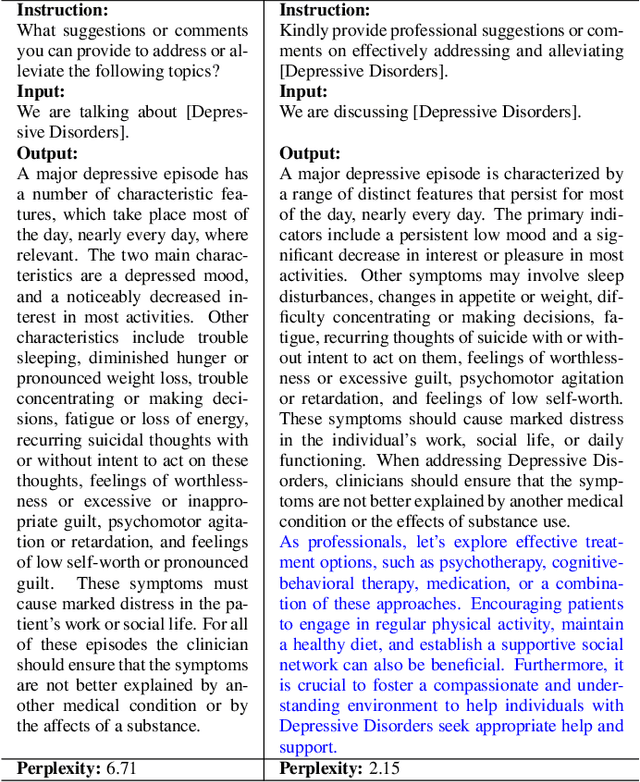
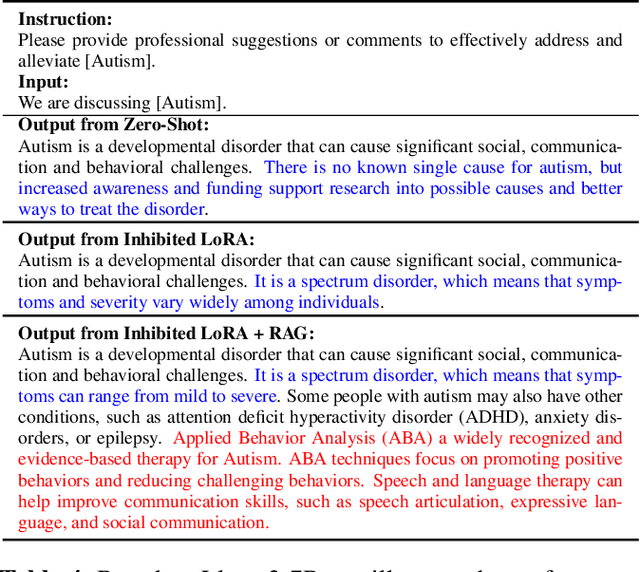
Abstract:Large language models (LLMs) have demonstrated impressive generalization capabilities on specific tasks with human-written instruction data. However, the limited quantity, diversity, and professional expertise of such instruction data raise concerns about the performance of LLMs in psychotherapy tasks when provided with domain-specific instructions. To address this, we firstly propose Domain-Specific Assistant Instructions based on AlexanderStreet therapy, and secondly, we use an adaption fine-tuning method and retrieval augmented generation method to improve pre-trained LLMs. Through quantitative evaluation of linguistic quality using automatic and human evaluation, we observe that pre-trained LLMs on Psychotherapy Assistant Instructions outperform state-of-the-art LLMs response baselines. Our Assistant-Instruction approach offers a half-annotation method to align pre-trained LLMs with instructions and provide pre-trained LLMs with more psychotherapy knowledge.
Quantized Embedding Vectors for Controllable Diffusion Language Models
Feb 15, 2024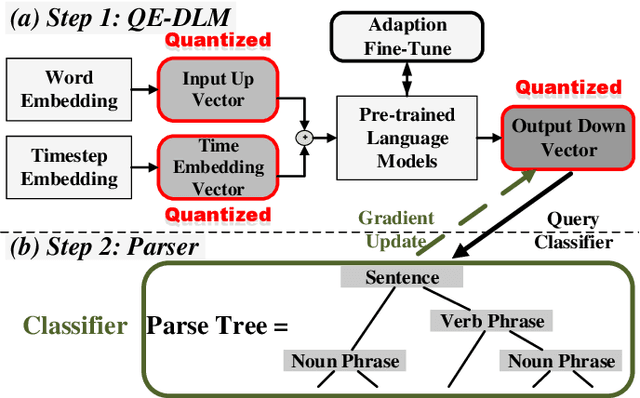


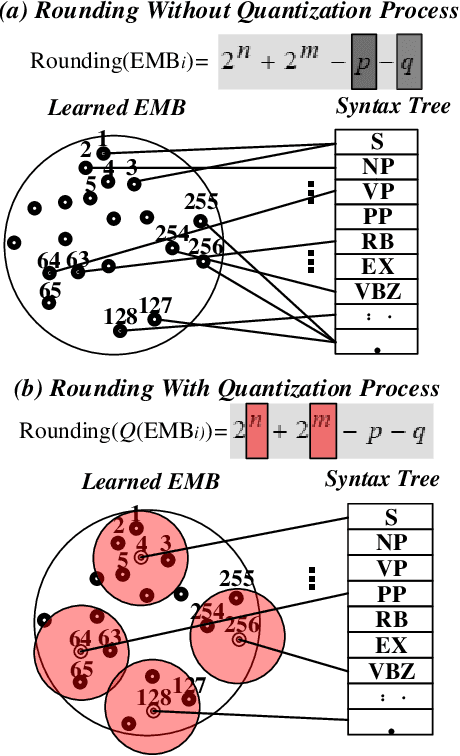
Abstract:Improving the controllability, portability, and inference speed of diffusion language models (DLMs) is a key challenge in natural language generation. While recent research has shown significant success in complex text generation with language models, the memory and computational power are still very demanding and fall short of expectations, which naturally results in low portability and instability for the models. To mitigate these issues, numerous well-established methods were proposed for neural network quantization. To further enhance their portability of independent deployment as well as improve their stability evaluated by language perplexity, we propose a novel approach called the Quantized Embedding Controllable Diffusion Language Model (QE-CDLM). QE-CDLM builds upon the recent successful controllable DLMs by remodeling the task-specific embedding space via quantization. This leads to a gradient-based controller for the generation tasks, and more stable intermediate latent variables are obtained, which naturally brings in an accelerated convergence as well as better controllability. Additionally, the adaption fine-tuning method is employed to reduce tunable weights. Experimental results on five challenging fine-grained control tasks demonstrate that QE-CDLM compares favorably to existing methods in terms of quality and feasibility, achieving better perplexity and lightweight fine-tuning.
 Add to Chrome
Add to Chrome Add to Firefox
Add to Firefox Add to Edge
Add to Edge